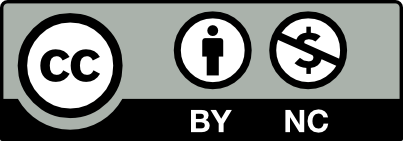Please use this identifier to cite or link to this item:
http://hdl.handle.net/10609/134030
| Title: | Maximizing customers' lifetime value using limited marketing resources |
| Author: | Marmol, Mage Goyal, Anita Copado Mendez, Pedro Jesus Panadero Martínez, Javier Juan, Angel A. |
| Others: | Euncet Business School Universitat Oberta de Catalunya. Internet Interdisciplinary Institute (IN3) Indian Institute of Management |
| Citation: | Marmol, M. [Mage Marmol], Goyal, A. [Anita Goyal], Copadoc, P. J. [Pedro J. Copadoc], Panadero Martínez, J. [Javier Panadero Martínez] & Juan Pérez, Á. A. [Juan Pérez, Ángel Alejandro] (2021). Maximizing customers' lifetime value using limited marketing resources. Marketing Intelligence and Planning. doi: 10.1108/MIP-02-2021-0050 |
| Abstract: | The profitability of customers for a business enterprise can be estimated by the so-called customer lifetime value (CLV). One specific goal for many enterprises consists in maximizing the aggregated CLV associated with its set of customers. To achieve this goal, a company can employ commercial actions (e.g., segmented or even fully personalized marketing campaigns), which are usually expensive. There is an economic trade-off between the investment in marketing actions and the aggregated CLV that can be achieved, i.e.: the higher the marketing budget, the higher the aggregated CLV that can be achieved. Hence, after reviewing the existing literature on optimization of the CLV, this paper proposes an original model to optimize the aggregated CLV subject to an available marketing budget. A solution to this problem is a selection of commercial actions to be deployed. The suggested model is inspired by the well-known uncapacitated facility location problem, where facilities servicing customers represent commercial actions, and the 'distance' from a customer to an action represents how close the action meets the customers' needs and interests (hence, the shortest the distance, the higher the increase in CLV that can be achieved). The aforementioned concepts are illustrated with a case study example. Finally, a series of computational experiments show the potential of the proposed approach when compared with a standard (non-algorithmic) one. |
| Keywords: | intelligent marketing customer lifetime value algorithms in marketing |
| DOI: | 10.1108/MIP-02-2021-0050 |
| Document type: | info:eu-repo/semantics/article |
| Version: | info:eu-repo/semantics/acceptedVersion |
| Issue Date: | Feb-2021 |
| Publication license: | http://creativecommons.org/licenses/by-nc/3.0/es/  |
| Appears in Collections: | Articles |
Files in This Item:
| File | Description | Size | Format | |
|---|---|---|---|---|
| PDF_Proof.PDF Restricted Access | 1,97 MB | Adobe PDF | View/Open Request a copy |
Share:
 Google Scholar
Google Scholar
 Microsoft Academic
Microsoft Academic
This item is licensed under a Creative Commons License


